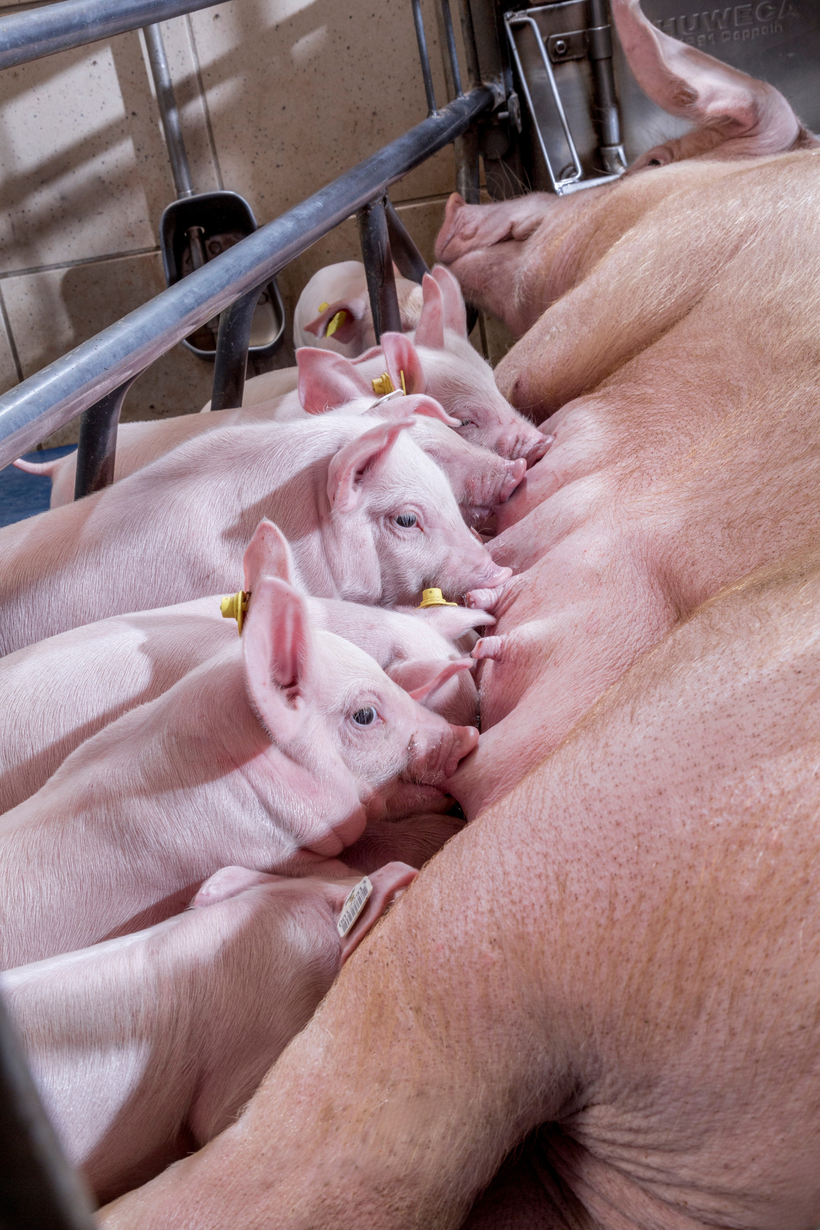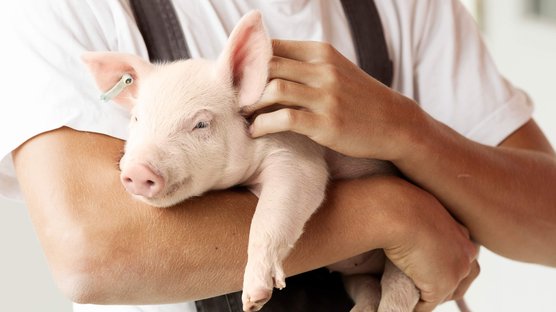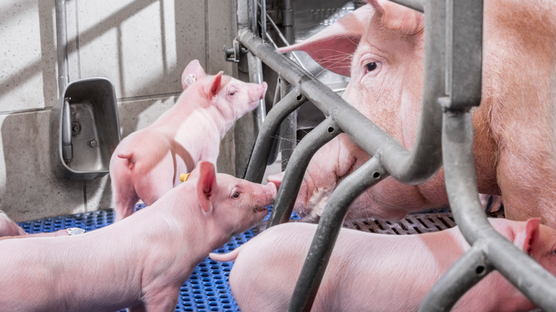
Published on Nov. 13, 2025
Preparing the farrowing room: a key step for sow and piglet success
Discover how proper preparation and environmental control in the farrowing room can improve outcomes for both sows and piglets.
Why is the farrowing room preparation so important?
Farrowing and lactation are critical phases in pig production. Ensuring the sow is comfortable, healthy, and stress-free during this time directly impacts the survival and performance of her piglets. That’s why Hendrix Genetics Swine emphasizes the importance of preparing the farrowing room with precision and care.
Before moving the sows, you should clean, disinfect, dry, and leave the room empty for as many days as possible between batches. This downtime helps reduce pathogen load and supports high health standards.
Environmental control: the foundation of comfort
Temperature and humidity play a vital role in piglet and sow well-being. Environmental controls should be programmed based on the day of lactation, with the following guidelines:
- Around farrowing: 23–24°C (73.4–75.2°F)
- First week of lactation: 22–23°C (71.6–73.4°F)
- Until weaning: 20–21°C (68–69.8°F)
- Humidity: Maintain between 55–75%
Stable conditions reduce stress, improve comfort, and promote better lactation performance.
When should you move sows and gilts to the farrowing room?
To ensure a smooth transition, you should move the gilts and sows to the farrowing room 4 to 7 days before their expected farrowing date. This period allows them to gradually adjust to a new environment, adapt to a different feed, settle into new routines, and become familiar with different staff members. For optimal results, you should house gilts and sows together in the same farrowing rooms, fostering a calm and consistent atmosphere that supports animal welfare and productivity.
Key considerations for farrowing and lactation
Maintaining high health standards is essential for successful farrowing and lactation. To protect both the sow and her piglets, it’s important to implement the following practices:
- Enforce strict biosecurity protocols
- Wash the sow before moving her into the room to reduce infection risk
- Promote positive interactions between staff and animals to promote a stress-free environment
- Enrich the environment by providing materials, such as burlap sacks, to encourage natural nest-building behaviors
- Ensure 16 hours of light during lactation to support wellbeing and productivity
These measures help reduce stress, enhance comfort, and contribute to better outcomes for both the sow and her litter.
The farrowing process should be quick, smooth, and at term. You should monitor events closely and record everything. Intervention should be minimal and only when necessary, not systematic.
Conclusion: Setting the Stage for Success
Proper farrowing room preparation is more than a routine. It’s a strategic step that directly influences sow comfort, piglet survival, and overall sow productivity. By focusing on environmental control, biosecurity, and positive human-animal interactions, producers can create optimal conditions for farrowing and lactation.
For further insights and visual guidance, explore our vlog on Farrowing Process.



